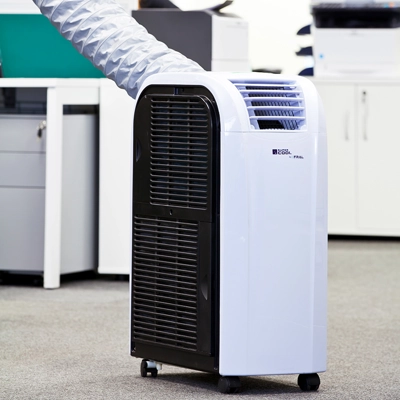During hot summers, staying comfortable indoors becomes one of your top priorities. Investing in cooling units is an effective step to control the temperature. When it comes to doing so, you may find yourself wondering whether to invest in an air conditioner (AC) or an air cooler.
Both options offer relief from rising temperatures. However, they work differently, have different costs, and suit different lifestyles. Choosing between them is not always simple, especially if you want to balance comfort, budget, and long-term needs. To make the right decision, you need to consider various factors. Let’s go through these considerations without any ado.
Key Things to Consider Before Choosing Between an AC and an Air Cooler
Budget and Running Costs
The first thing you should look at is your budget. ACs are more expensive to buy and install compared to air coolers. Moreover, they also consume more electricity, which means higher monthly bills. However, various advanced models, such as the Fral SC14 Portable Air Conditioner, are both energy and cost-efficient. They help you reduce your electricity bills over time.
On the other hand, air coolers are affordable upfront and require less power to run. This makes them more suitable if you want a pocket-friendly option for everyday use. You should not think about the one-time cost only, but also the running expense.
Climate of Your Area
Where you live plays a big role in deciding between an AC and a cooler. Air coolers work best in hot and dry climates because they add moisture to the air. However, in humid areas, they may not provide effective cooling.
On the other side of the spectrum, AC works well in all weather conditions. They remove excess moisture from the air, making the environment more comfortable. So, if your region has humid summers, an AC will serve you better.
Energy Consumption
Energy usage is another important point you must think about. ACs use compressors and refrigerants, which means they consume a lot of electricity. It can put pressure on your monthly budget if you use them for long hours. In contrast, air coolers run on simple water and fan technology, which requires less energy.
If you are conscious about electricity costs or want an eco-friendlier choice, a cooler is a better option. However, if you are more focused on strong cooling and do not mind higher bills, an AC is the right investment.
Space and Room Size
The size of your room is also a deciding factor. Air coolers are more suitable for small to medium rooms, as they work by blowing air across water-soaked pads. In a large space, their cooling effect may not spread evenly.
ACs are designed to handle bigger spaces and provide consistent cooling across the entire room. If you need to cool a living room or a large bedroom, AC is the practical option. But if your requirement is for a single small room, a cooler will do the job without costing you a lot of money.
Health and Air Quality
You should also consider how each option affects air quality and your health. Air coolers circulate fresh air from outside and keep the environment more natural. They do not dry out the air, which can be better for your skin, eyes, and breathing.
Meanwhile, ACs recycle the same air in the room and often reduce humidity, which may cause dryness if used for long hours. However, they can filter dust and pollutants with proper maintenance, which helps improve indoor air quality.
Maintenance and Care
You cannot make the final call without considering the care and effort required to keep the system running smoothly. Air coolers require refilling water, cleaning the pads, and occasionally servicing the motor and pump, which can be time-consuming. However, advanced models, such as the Symphony Diet 22i Evaporative Air Cooler, come with easily removable pads, making it easier to maintain them.
ACs also require regular servicing, gas refills, and professional checks to stay efficient. The cost of AC maintenance is higher compared to coolers. However, you don’t have to do anything on your own except clean filters. Therefore, air conditioners are also easy to maintain, especially for busy professionals.
Environmental Impact
Air coolers are more eco-friendly because they use water for cooling and consume very little power. They do not release harmful gases. ACs rely on refrigerants and compressors, which contribute to greenhouse gas emissions.
Though newer AC models are becoming more energy efficient, they still have a larger carbon footprint compared to coolers. If environmental concerns are important to you, a cooler is the greener choice. But if your main priority is all-season cooling, AC is always a suitable option.
Final Verdict
Choosing between an AC and an air cooler depends on your lifestyle, budget, and needs. If you want cost-effectiveness and eco-friendliness, a cooler is the better option. But if you are looking for strong cooling in all climates, an AC is more suitable.

